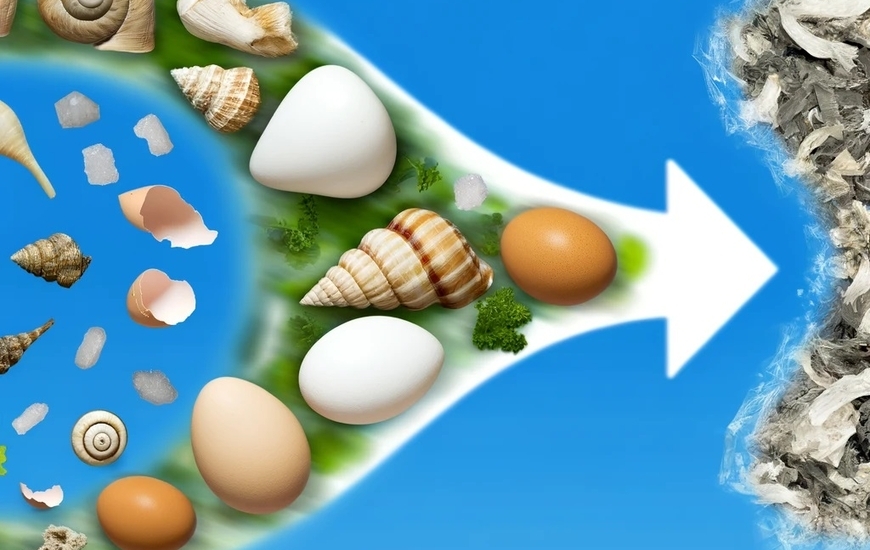by Carlo SANTULLI*, Cristiano FRAGASSA**, Danilo NIKOLIC***
The sustainable use of calcium carbonate and phosphate sources derived from food waste represents an expanding field of research aimed at reducing the environmental impact of the materials industry and valorizing organic waste. This approach exploits waste from the food industry, such as shells from snails, clams, mussels, oysters, eggshells, and cuttlefish bones, as biogenic sources of calcium carbonate, transforming them into useful materials for various applications, from cement production to modifying the properties of polymer composites and the development of biomaterials following their transformation into hydroxyapatite.
Biogenic calcium carbonate offers significant advantages over calcium carbonate extracted from mineral sources, thanks to its unique properties derived from species-tailored biological self-assembly processes. These biomimetic materials mimic natural processes, improving material properties such as surface finish, rheology, hardness, toughness and impact resistance. The added- value of these materials comes not only from their sustainability but also from the improved technical performance they are capable to offer.
A significant challenge in this field is the effective substitution of extracted calcium carbonate with biogenic carbonate, taking into account the specific characteristics of each waste source, such as its granulometry, polymorphs (calcite or aragonite), and hierarchical microscopic patterns. These details are essential for optimizing the use of biogenic calcium carbonate, making the most of its benefits both environmentally and functionally.
Research has shown that the particle size, interfacial adhesion, and hierarchical microscopic patterns of biogenic calcium carbonate significantly affect the mechanical properties of composite materials, such as strength, stiffness, and toughness. These aspects are crucial for the development of materials that are not only sustainable but also capable of meeting or exceeding the performance of traditional materials.
For example, adding calcium carbonate derived from eggshells to polymeric composites can improve impact resistance and hardness, thanks to the particular morphology and chemical composition of eggshells. Similarly, the use of specific mollusk shells, rich in aragonite, offers unique opportunities for creating composites with improved mechanical properties, exploiting the natural hierarchical structures these shells present.
Furthermore, transforming calcium carbonate into calcium phosphate for biomaterial applications opens new frontiers in regenerative medicine, offering sustainable alternatives for the replacement and repair of hard tissues, such as bones and teeth. These biomimetic materials not only emulate the composition and structure of natural tissues but also promote regeneration and integration with the host tissue.
In conclusion, the biomimetic approach to valorizing food waste for the production of biogenic calcium carbonate and phosphate represents a promising strategy for the development of sustainable and high-performance materials. This research highlights the importance of a holistic and thoughtful approach in exploiting renewable resources and reducing the environmental impact of the materials industry, leading it to more sustainable and responsible production practices.
This study was conducted within the 'SEA.COMP' project on the use of marine origin waste for the production of eco-sustainable composites, an initiative co-financed by the Ministry of Foreign Affairs and International Cooperation (MAECI). Further details available at https://doi.org/10.3390/ma17040843
*Associate Professor, University of Camerino
**Researcher, University of Bologna
***Full Professor, University of Montenegro
-

-
21 February 2024





















